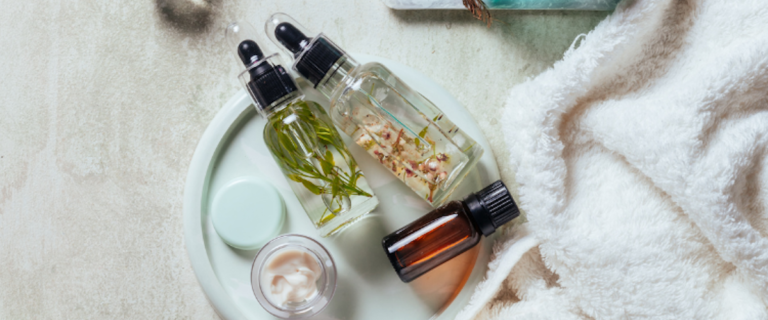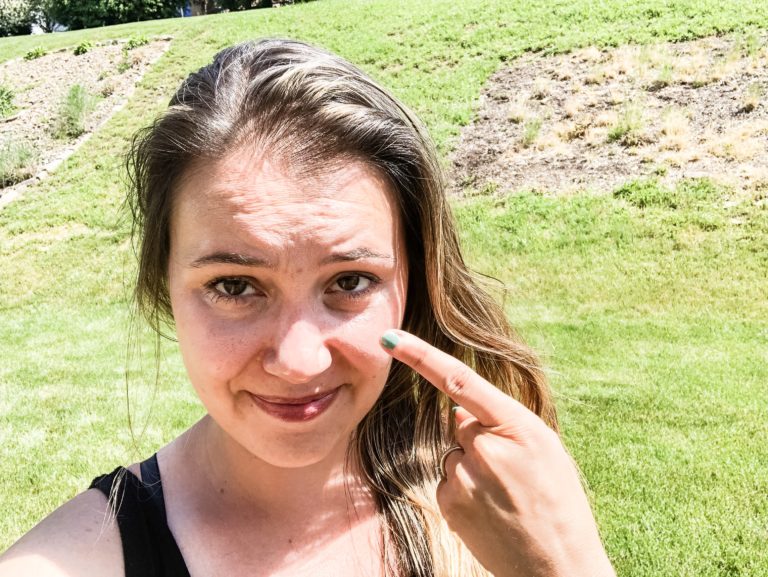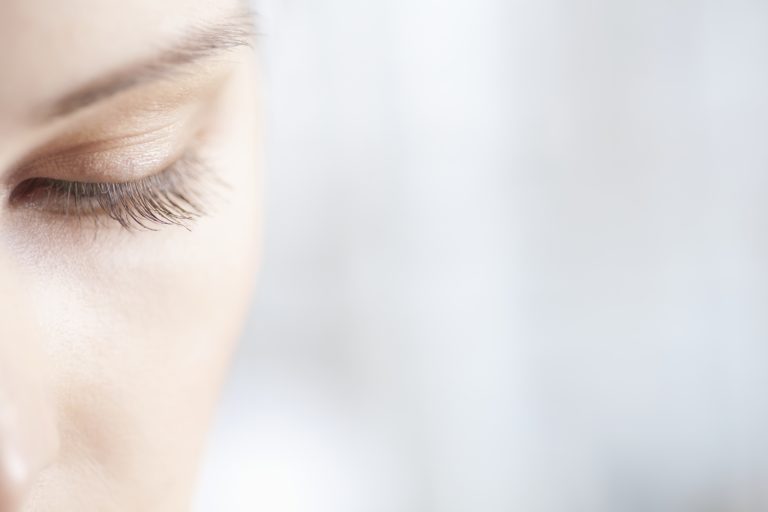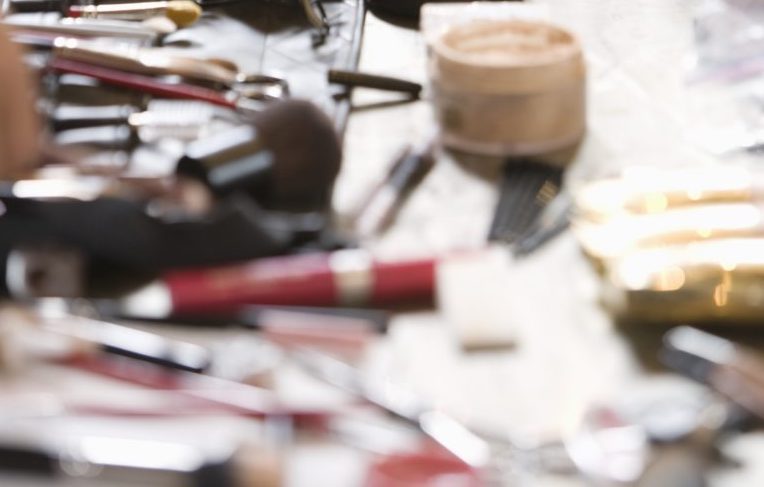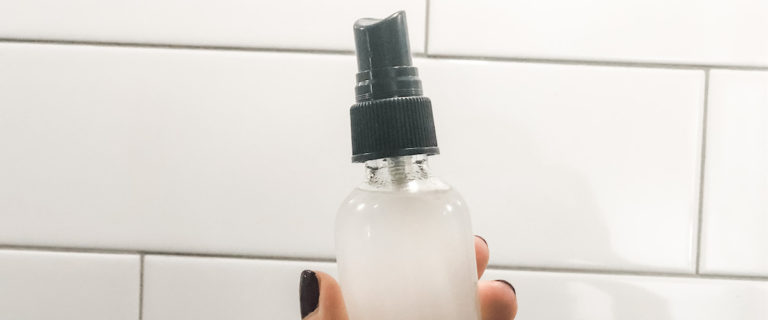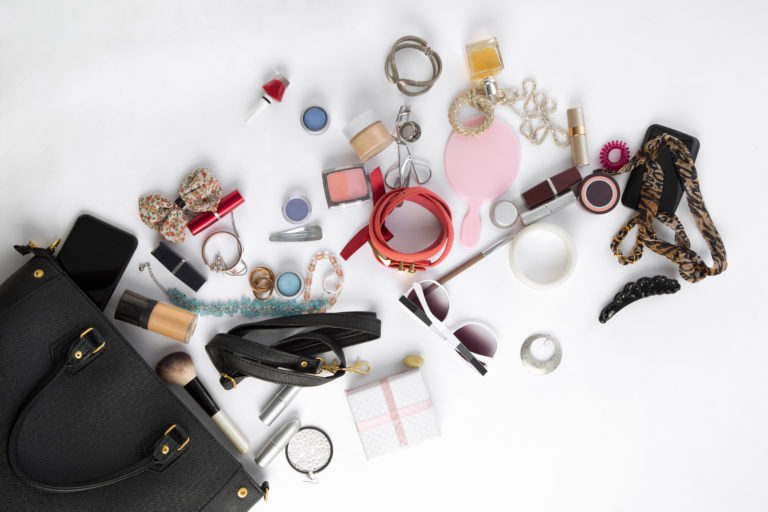With winter in full force, you’ve probably found yourself asking “can dry skin cause acne?” The answer is yes. Here’s what dry skin acne is and how to treat it.
This post contains affiliate links.
Personally, I’ve been under the impression my entire life that acne was caused because of too much oil on your skin. Sound familiar? Of course it does. We grew up in the age of oil blotting sheets for goodness sakes. However, having this drilled into our heads for most of our youth can leave so many of us a little bit off whenever it comes to our grown up skincare routine – especially if we’re still experiencing breakouts.
Take me for instance.
I’m a 33 year old mama of two who is just finally starting to pin down the cause of her long-time breakouts and a lot of it has to do with dry skin acne. Except, I had no clue until recently.

Join my Clean Beauty Group Here!
Can Dry Skin Cause Acne?
Heck yes!
So first, we know that from experience, skin with an excess of oil (not caused by over-production due to dry skin) is typically the culprit for breakouts. Why? Because oil, along with other things like dirt, environmental factors, dead skin cells, but mostly oil, cause clogged pores which leads to acne – no matter how old you are.
Dry skin acne comes into play whenever the skin is damaged. Yes, damaged. It doesn’t mean that it’s winter so your skin is dry and you are breaking out (though that can happen, too – the skin is so complex), it means that the top layer of your skin needs to be mended.
Like I’ve mentioned before about oil cleansing, your skin relies on the lipid layer to keep out any potential irritants. These are things such as bacteria, fungi and skin viruses. Whenever this lipid layer is damaged, your skin becomes dry, thus losing it’s ability to perform these tasks. This then causes, buildup on the surface of your skin, which will then become irritated and cause some major acne breakouts.
How do you treat dry skin acne?
So now that we know that dry skin acne is a thing and what causes it, how do we then rectify the issue?
I personally spent a lot of time playing around with different Beautycounter products until I learned that even though I thought I had oily skin my entire life, I actually had combination skin. So figuring out your skin type is the very first step to treating your dry skin acne.
Take this skincare quiz to figure out your type and a regimen that works for you!
In order to treat your dry skin acne, you have to start by treating the lipid layer, which is best done using the Countertime Lipid Defense Cleansing oil, which is seriously a genius product. Hands down, this will be the most impactful tool is resolving these issues. The cleansing oil, informed by Japanese technology, is gentle yet effective and reinforces the skin’s fragile moisture barrier for a soothed, nourished complexion.
The second thing you need to make sure you are doing is to avoid over-washing. This is huge, so listen up. While you might be under the impression that cleansing over and over will deep clean your face and get rid of the acne, it will actually do the opposite.
Third, avoid using special creams or spot treatments for acne, at least util your dry skin acne is resolved. You really have to go back to the simple basics to recover from your dry skin and slow and steady is the way to go with this one.
Fourth, moisturize like it’s your job.
And lastly, you have to protect your skin from the elements. Meaning that if it’s summer, apply sunscreen in your routine, if it’s winter, still apply sunscreen, but add scarves and thing to cover your face from the cold. You don’t realize how big of an impact it makes until you actually do it.
Shop with me at Beautycounter Here!
LOOKING MORE MORE BEAUTY TALK? I’VE GOT YOU COVERED!
-
- How to Help Reduce Beauty Product Waste
- Here’s Why Major Brands Are Finally Investing in Clean Beauty
- Dear CoverGirl: Here’s Why I’m Not Buying Your ‘Clean Fresh’ Line
- How to Look Beautiful Overnight (With These Overnight beauty Products)
- Based on Your Zodiac Sign, These Are The Beauty Products You Love Most
- How to Tell if a Beauty Product is Actually Clean
XOXO,
Allison




